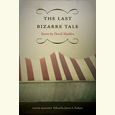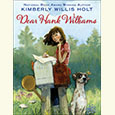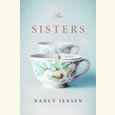Kitchen Babies
Former rocker Freda Love Smith teaches her son to cook—and writes a splendid memoir along the way
A gritty rock club and a modest home kitchen might seem like opposite ends of the earth. But in Freda Love Smith’s new book, Red Velvet Underground, the two are deliciously twined. A memoir seasoned with recipes, this story charts the coming of age of both mother and child as Smith teaches her teenage son how to cook.
 In the 1990s, Smith played drums in an indie-rock band, The Blake Babies, as well as two later groups, Antenna and Mysteries of Life. A high-school graduate at sixteen, she’d dropped out of college after only a year, gambling on band life in Boston with her then-boyfriend, John. There the two met singer-songwriter Juliana Hatfield, and the Blake Babies were born.
In the 1990s, Smith played drums in an indie-rock band, The Blake Babies, as well as two later groups, Antenna and Mysteries of Life. A high-school graduate at sixteen, she’d dropped out of college after only a year, gambling on band life in Boston with her then-boyfriend, John. There the two met singer-songwriter Juliana Hatfield, and the Blake Babies were born.
As the book begins, though, that’s all decades past. Smith is married with two kids, Jonah and Henry. What’s heaviest on her mind is teenage Jonah’s plan—or lack thereof—for the future. As his senior year of high school begins, lots of questions float unanswered. Will he attend college, and if so, where? What does he really want? And how will she and her husband help him pay for it? In part to hold her son close at this pivotal point, and in part to equip him with real-world skills, Smith offers to pass onto Jonah the cooking chops she gained over decades of eking out sustenance on a struggling indie musician’s income, and through hours clocked on the job in numerous bakeries and restaurants.
To her delight, Jonah proves a willing pupil. Those cooking lessons frame Smith’s narrative, into which she incorporates reflections on her band years: the van tours, album promotion cycles, and strings of jobs to pay the bills throughout. She writes of one of her favorite tour stops, Athens, Georgia, where she fell in love with the simple, hearty vegetarian cuisine at The Grit; and she writes of whipping up batches of “Condo Pad Black Bean Soup” in the days when the Blake Babies were sharing an apartment, making music, and getting by on, well, beans.
 In each chapter, Smith’s reminiscence and Jonah’s steady march toward independence are skillfully layered like delicate sheets of pastry. She gets right to the heart of the project when she pauses to articulate what she learned through her relationship with food over the years—and is learning still—about herself and about mothering her son: “From young vegetarian rocker to middle-aged flexitarian mom, I always answered my own internal questions about who I am in terms of food,” she writes. The dishes she and Jonah prepare transform the family’s kitchen into a sacred space, “a place of memory and emotion where more is at stake than a tray of scones.”
In each chapter, Smith’s reminiscence and Jonah’s steady march toward independence are skillfully layered like delicate sheets of pastry. She gets right to the heart of the project when she pauses to articulate what she learned through her relationship with food over the years—and is learning still—about herself and about mothering her son: “From young vegetarian rocker to middle-aged flexitarian mom, I always answered my own internal questions about who I am in terms of food,” she writes. The dishes she and Jonah prepare transform the family’s kitchen into a sacred space, “a place of memory and emotion where more is at stake than a tray of scones.”
Love acknowledges that she grew up fast and took risks that her parents frowned upon. She doesn’t regret her rock ’n’ roll life, but she’s not sure she wants her son to replicate it, either. “I didn’t take a gap year, I took two gap decades,” she says. “I was no role model for Jonah.” Her desire is the very one that fuels so many parenting decisions: wanting to give her boys what she didn’t have, wanting them to avoid the mistakes she made—in other words, parenting as the great corrective. “Maybe it was unfair of me to expect Jonah to have some kind of a clear and focused plan for college and beyond,” she writes. “But I have always hoped to steer him away from the messy roads I’ve travelled.”
But as Smith and her son cook together—going full-on vegan for a month, mastering the stir-fry, seeking winter comfort in soup, and indulging in yellow cake with chocolate icing (every man should know how to bake a cake, she insists), Smith sees that perhaps “the wishy-washiness that bugs me in myself has been more instructive than I realized. I could see that my sons had some room to think about food and to play around with how and what they want to eat (and maybe where and why they want to go to college).”
Each chapter ends with recipes so that, though the book is more memoir than cookbook, it gently summons readers to the kitchen. Those recipes are a healthy blend of vegan and vegetarian with just a smidge of meat-based fare included—and one recipe unlikely to be found in any other cookbook of any kind: Garlic Placenta. Yes, you read that right.
All that’s missing from this engaging “post-rock” memoir is a great playlist for each set of recipes. But maybe that’s where our own creativity—and the Blake Babies catalog—comes into play.

Susannah Felts is a writer, editor, and educator in Nashville, as well as co-founder of The Porch Writers’ Collective, a nonprofit literary center. She is the author of This Will Go Down On Your Permanent Record, a novel, and numerous journal and magazine articles.


